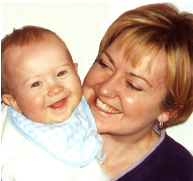Overcoming the Feeling of Being Abandoned
Alice Miller
...Take, for an example, the feeling of being abandoned - not that of the adult, who feels lonely and therefore takes tablets or drugs, goes to the movies, visits friends, or telephones "unnecessarily", in order to bridge the gap somehow. No, I mean the original feeling in the small infant, who had none of these chances of distraction and whose communication, verbal or preverbal, did not reach the mother.
This was not the case because his mother was bad, but because she herself was narcissistically deprived, dependent on a specific echo from the child that was so essential to her, for she herself was a child in search of an object that could be available to her.
However paradoxical this may seem, a child is at the mother's disposal. A child cannot run away from her as her own mother once did. A child can be so brought up that it becomes what she wants it to be. A child can be made to show respect, she can impose her own feelings on him, see herself mirrored in his love and admiration, and feel strong in his presence, but when he becomes too much she can abandon that child to a stranger. The mother can feel herself at the centre of attention, for her child's eyes follow her everywhere.
When a woman had to suppress and repress all these needs in relation to her own mother, they rise from the depth of her unconscious and seek gratification through her own child, however well-educated and well-intentioned she may be, and however much she is aware of what a child needs.
The child feels this clearly and very soon forgoes the expression of his own distress. Later, when these feelings of being deserted begin to emerge in the analysis of the adult, they are accompanied by such intensity of pain and despair that it is quite clear that these people could not have survived so much pain. That would only have been possible in an empathic, attentive environment, and this they lacked...
Copyright © 1981 by Basic Books. Excerpted from the book Prisoners of Childhood by Alice Miller. Originally published in German as Das Drama des begapten Kindes,Copyright © 1979 Suhrkamp Verlag, Frankfurt am Main
